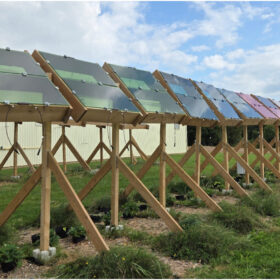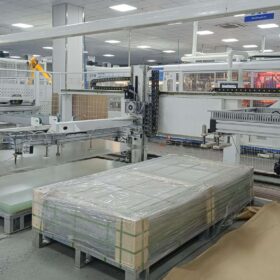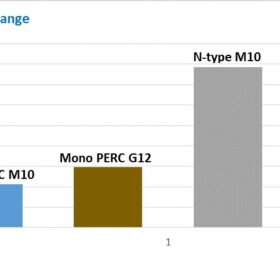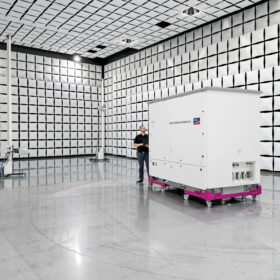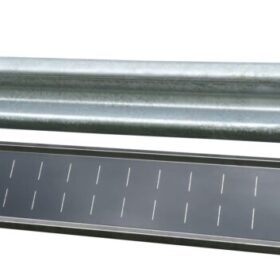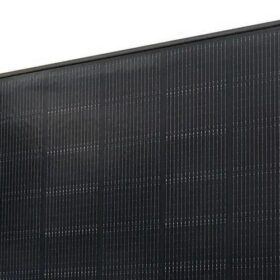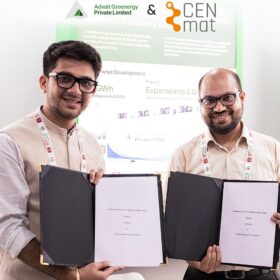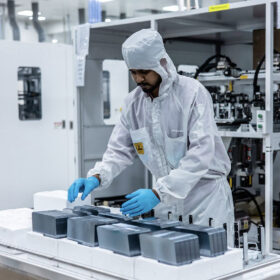Cadmium telluride vs. crystalline silicon in agrivoltaics
Researchers in Canada have compared strawberry growth under uniform illumination from semi-transparent thin-film cadmium telluride panels and non-uniform illumination from semi-transparent crystalline silicon modules. Their analysis considered metrics such as fresh weight, height, leaf count, chlorophyll content, soil temperature and humidity.
Trump order rescinds Defense Production Act application to solar manufacturing
President Biden invoked the law to increase domestic solar manufacturing and support energy efficiency buildout.
Fraunhofer showcases hydrogen microgrid platform
The Fraunhofer Institute for Machine Tools and Forming Technology IWU will showcase a new hydrogen microgrid platform at the end of March. The researchers say it could help to serve hospitals, remote rural areas and war-torn regions.
Solar wafer prices trend upward as China’s domestic demand surges
In a new weekly update for pv magazine, OPIS, a Dow Jones company, provides a quick look at the main price trends in the global PV industry.
SMA America releases 99.2% efficient grid-scale battery storage inverter
The inverters use a silicon carbide metal-oxide-semiconductor field-effect transistor for high power conversion capability.
Tecnalia, Vita International developing solar guardrails
Spain’s Tecnalia and Italy-based Vita International have designed a new photovoltaic guardrail, set for testing later this year on a 100-meter stretch of a highway service area between Turin and Trieste, Italy.
Prices rising across China’s PV supply chain, says EnergyTrend
Taiwan-based research firm EnergyTrend says market optimism in China has driven up solar module prices, while production of modules, cells, and wafers has increased month on month.
Securing the sun: How PV industry can thwart cybercriminals
Australia’s rapidly growing solar PV industry faces mounting cyber risks that no operator can afford to ignore. PV systems rely on intricate supply chains, incorporating hardware and software from multiple vendors. Each link in this chain – be it a component manufacturer, a software provider, or a maintenance contractor – can introduce potential entry points for cyberattacks.
Viridian Solar launches 23.6%-efficient TOPCon BIPV panel
The UK company says the new modules have a rated power output of 445 W and can reportedly guarantee a power yield of 95% after 10 years.
The Hydrogen Stream: BPCL collaborates with BluJ Aerospace, ANERT, and CIAL for world’s first hydrogen-powered VTOL aviation ecosystem
Bharat Petroleum Corp Ltd (BPCL) will establish hydrogen refuelling infrastructure for the hydrogen-fueled vertical take-off and landing (VTOL) aircraft developed by BluJ Aerospace. It will also design and develop an indigenous proton exchange membrane (PEM) hydrogen fuel cell with high power density to facilitate vertical lift-off.
